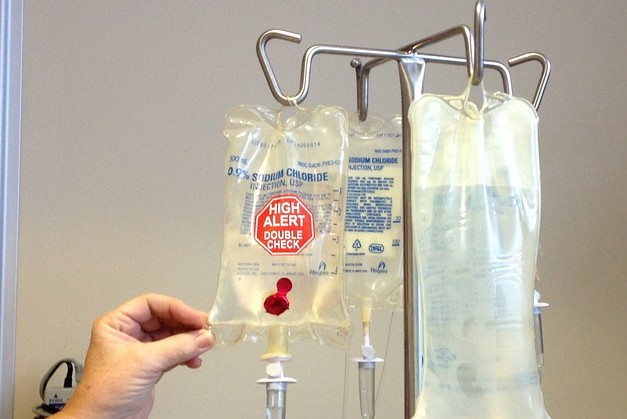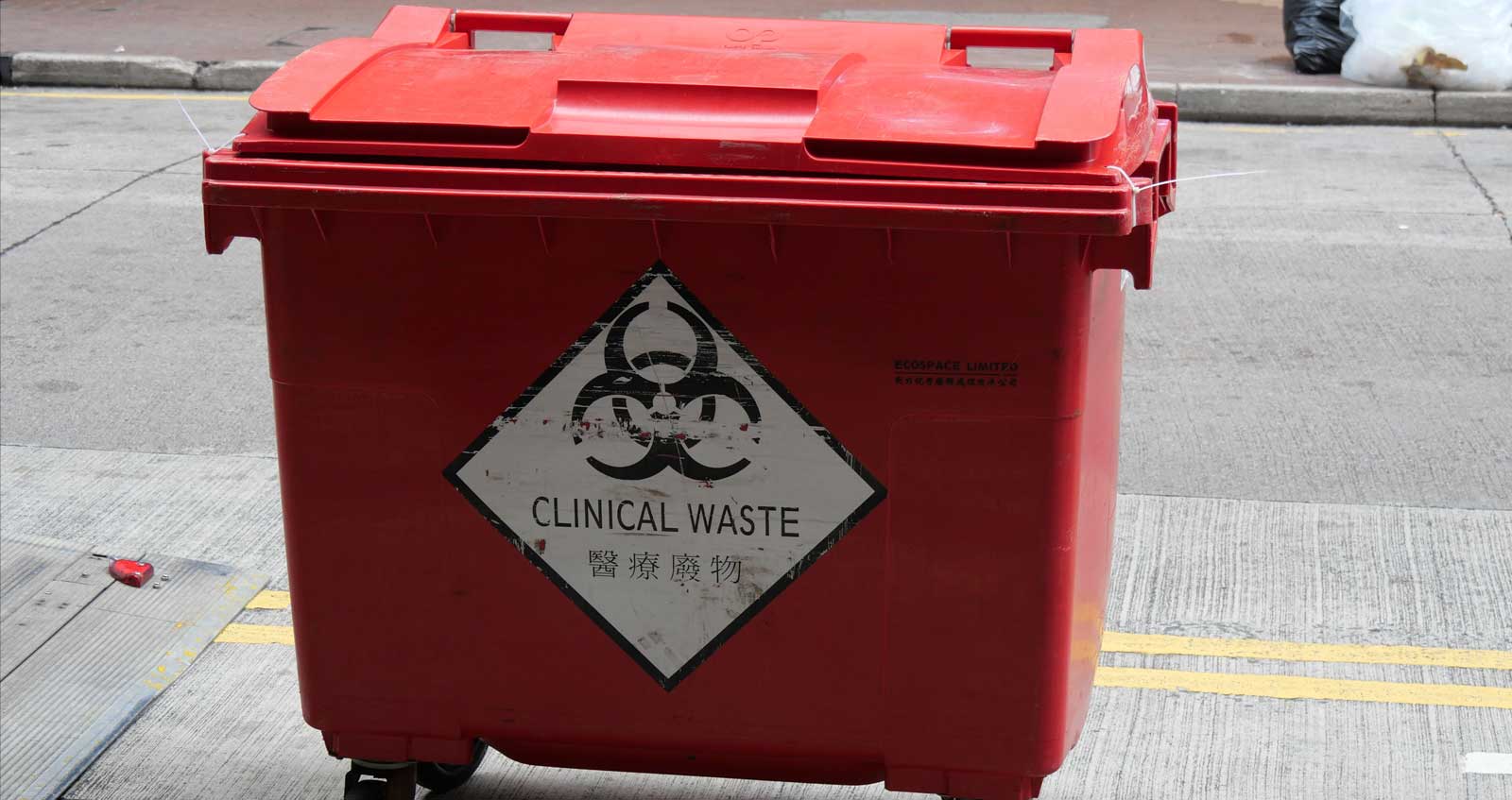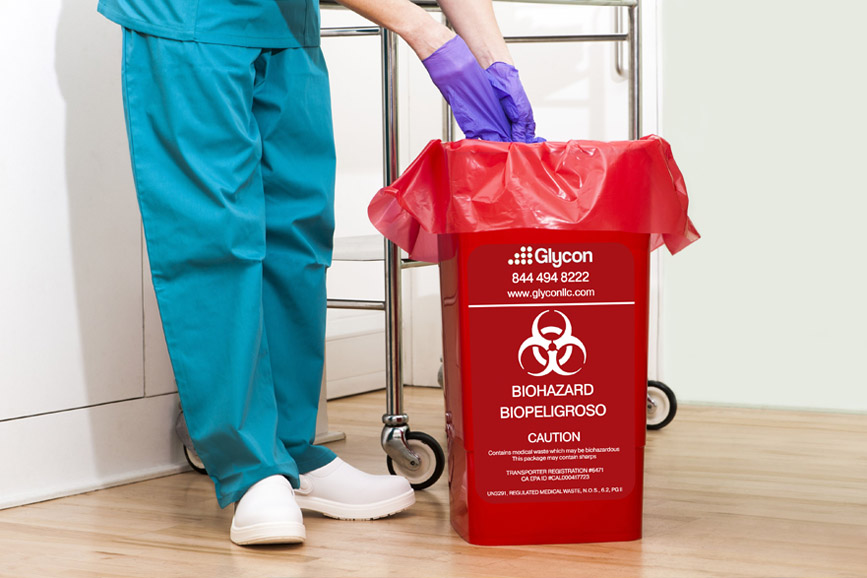Your Relied On Companion: Medical Waste Removal Services Tailored to Your Demands
Wiki Article
Keep Ahead of Regulations: Expert Guidance on Medical Waste Disposal
In a globe where the medical care sector is regularly progressing, it is imperative for clinical facilities to stay ahead of laws when it comes to the correct disposal of medical waste. From comprehending the various categories of medical waste to carrying out the right collection and partition methods, this discussion will certainly supply useful understandings and workable tips to aid centers stay ahead of laws in the ever-changing landscape of medical waste disposal.Recognizing Medical Waste Categories
Understanding clinical waste classifications is important for correct disposal and administration in health care facilities. Clinical waste describes any kind of waste produced by medical care activities that might present a danger to public wellness or the setting. It is essential to classify medical waste properly to ensure its risk-free handling, transport, therapy, and disposal.There are numerous groups of medical waste that healthcare centers require to be acquainted with. The most usual classifications consist of infectious waste, pathological waste, sharps waste, pharmaceutical waste, and chemical waste. Each category has certain standards and regulations for its proper administration and disposal.
Transmittable waste consists of materials polluted with blood or various other bodily liquids, such as handwear covers, dress, and laboratory societies. Pathological waste describes human cells, organs, or body components that need unique handling and disposal. Sharps waste consists of utilized needles, syringes, and various other sharp things that can cause injury and transmit infections. Drug waste consists of run out, extra, or infected drugs that require cautious handling and disposal. Chemical waste consists of solvents, anti-bacterials, and various other chemical compounds made use of in medical care centers.
Staying Up-To-Date With Regulatory Modifications
Staying current with regulatory adjustments is important for medical care centers to make sure conformity and correct monitoring of medical garbage disposal. medical waste removal near me. With laws constantly developing, it is crucial for health care facilities to remain up-to-date to avoid charges, penalties, and prospective injury to the atmosphere and public healthTo stay in advance of regulative adjustments, health care centers need to establish a system for tracking and tracking updates. This can be done by registering for regulatory e-newsletters, participating in seminars and workshops, and proactively joining market organizations. In addition, centers should assign an employee or team in charge of remaining informed and distributing info to relevant stakeholders.
Routine communication with regulative companies is likewise essential. Medical care centers must develop connections with neighborhood, state, and federal firms to ensure they understand any adjustments in laws that may affect their waste management methods. This can be done with routine conferences, involvement in public remark durations, and positive engagement with regulative firms.
Moreover, healthcare facilities must think about partnering with waste monitoring business that specialize in clinical waste disposal (medical waste disposal services with WasteX). These business are often well-versed in the most recent laws and can provide guidance and assistance to make sure conformity
Applying Appropriate Collection and Partition Methods
To properly handle clinical waste disposal, medical care centers have to develop correct collection and partition approaches based on regulatory standards. Implementing these techniques guarantees the safe handling and disposal of possibly dangerous products, protects the setting, and lessens the threat of injuries and infections to health care workers and the basic public.
Proper collection and segregation approaches involve using assigned containers and classifying systems. Medical care facilities must give plainly labeled containers for different kinds of medical waste, such as sharps, transmittable waste, pharmaceutical waste, and non-hazardous waste. These containers should be color-coded and clearly significant to stay clear of confusion and promote simple identification.
Additionally, health care facilities should train their staff on the proper procedures for gathering and setting apart clinical waste. This includes educating them on the different kinds of waste, the proper containers to utilize, and the relevance of complying with laws and standards. Normal training sessions and refresher course training courses ought to be conducted to make sure that team member stay updated on best methods.
Furthermore, medical care facilities need to establish a system for normal collection and disposal of medical waste. This may include partnering with accredited waste management companies that focus on clinical garbage disposal. These business will certainly ensure that the collected waste is carried and taken care of in conformity with governing requirements.
Selecting the Right Disposal Techniques

Incineration is one of the go to this web-site most common and efficient techniques for disposing of certain sorts of medical waste, such as pathological waste and sharps. It includes the controlled combustion of waste at heats, decreasing it to ash. Nevertheless, incineration can release damaging contaminants into the air and contribute to air contamination.

Various other disposal approaches consist of chemical therapy, microwave treatment, and landfilling. Chemical therapy involves the usage of chemicals to sanitize and counteract the waste. Microwave treatment makes use of microwave energy to warm and disinfect the waste. Landfilling includes burying the waste in a designated garbage dump location (medical waste disposal services with WasteX). Landfilling should be the last resort due to the potential risk of contamination to dirt and groundwater.
Making Sure Conformity Via Documentation and Training
After very carefully considering the suitable disposal techniques for medical waste, healthcare facilities should guarantee conformity with laws and lessen environmental influence by implementing reliable documentation and training treatments. This action is critical in keeping a secure and sustainable setting for both health care workers and the general public.
Health care employees who manage medical waste must get suitable training on waste segregation, managing, and disposal treatments. By offering extensive training, health care facilities can empower their staff to make enlightened choices and decrease the threat of incorrect waste disposal.
Final Thought
To conclude, staying ahead of regulations in medical garbage disposal is crucial for medical care centers. medical waste removal service. Understanding the various groups of clinical waste, staying updated with governing modifications, executing proper collection and partition approaches, picking the suitable disposal methods, and guaranteeing conformity with documentation and training are all crucial actions. By complying with these guidelines, medical care organizations can effectively take care of and dispose of medical waste in a safe and liable fashionFrom understanding the various groups of clinical waste to executing the appropriate collection and segregation approaches, this you could try these out conversation will give useful insights and actionable tips to assist centers stay in advance of regulations in the ever-changing landscape of clinical waste disposal. - medical waste disposal services with WasteX
The most common classifications consist of transmittable waste, pathological waste, sharps waste, pharmaceutical waste, and chemical waste. Medical care centers should provide clearly labeled containers for different types of medical waste, such as sharps, contagious waste, pharmaceutical waste, and non-hazardous waste. Health care centers must develop a detailed system to tape and track all facets of clinical waste disposal, consisting of kinds of waste created, amounts, and disposal techniques used. Healthcare workers who handle clinical waste needs to obtain ideal training on waste partition, taking care of, and disposal treatments.
Report this wiki page